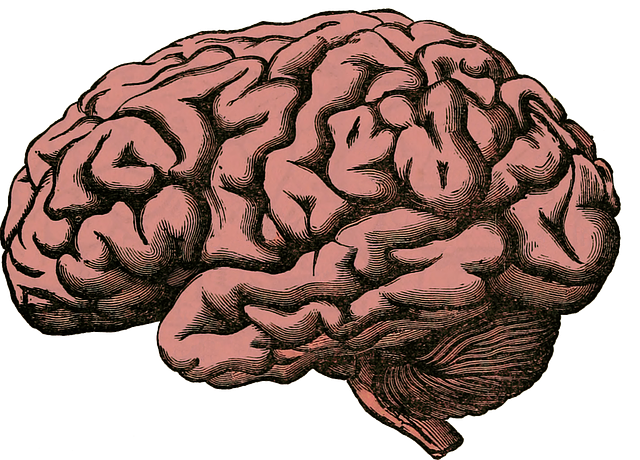Evaluating mental wellness programs for conditions like Littleton Oppositional Defiance Disorder (LODD) requires a multi-faceted approach combining quantitative and qualitative methods. Key performance indicators (KPIs) include attitude, behavior, symptom, functioning, interaction, and academic improvements tracked over time. Client feedback surveys are vital tools providing insights into treatment effectiveness and therapeutic experiences. By analyzing these responses, practitioners can tailor care, refine practices, and enhance the success rates of LODD therapy programs in Littleton, ensuring improved mental wellness outcomes.
“Uncovering the effectiveness of mental wellness programs is vital for fostering positive change in individuals struggling with oppositional defiant disorder (Littleton ODD Therapy). This article explores comprehensive evaluation methods, offering a strategic approach to assess program success. From assessing client satisfaction and tracking individual progress to employing comparative analysis techniques like pre-post testing and longitudinal studies, we delve into ensuring impactful results. Additionally, we emphasize the importance of diverse stakeholder perspectives, including therapist insights, family support, and continuous program adaptation for sustained improvement.”
- Assessing Program Effectiveness
- – Metrics for Measuring Success
- – Client Feedback and Satisfaction Surveys
Assessing Program Effectiveness

Evaluating the effectiveness of a mental wellness program is a multifaceted process that goes beyond simple participant satisfaction. It involves assessing tangible improvements in individuals’ lives, such as reduced symptoms of conditions like Oppositional Defiant Disorder (ODD) in children and adolescents, often treated through therapy models like those practiced in Littleton. This includes quantitative methods, like tracking changes over time in behavioral scores or self-reported mental health metrics, to gain data-driven insights into program success.
Qualitative assessments, such as interviews or focus groups with participants and their caregivers, offer deeper insights into the lived experiences of program beneficiaries. By combining these approaches, mental wellness initiatives can be effectively tailored to promote emotional well-being. Techniques like those found in our Mental Wellness Podcast Series Production, which engages and educates listeners, or programs focused on Inner Strength Development, empower individuals with coping mechanisms and resilience, ultimately fostering lasting positive change.
– Metrics for Measuring Success

When evaluating the success of a mental wellness program, particularly one focused on conditions like Littleton Oppositional Defiance Disorder (LODD), it’s crucial to define clear metrics. These should go beyond simple attendance and encompass both qualitative and quantitative data. Key performance indicators (KPIs) might include improvements in client attitudes, behavior changes measured through standardized scales, and reductions in symptoms as reported by participants and their families. For instance, a significant decrease in aggressive outbursts or an increase in proactive problem-solving behaviors can indicate the program’s effectiveness.
Additionally, measuring the impact on daily functioning, social interactions, and academic performance (in the case of youth programs) can offer valuable insights. Longitudinal assessments, where clients are evaluated at various stages post-program, help identify sustained improvements. These metrics not only ensure accountability but also guide adjustments to the program structure, content, and delivery methods, enhancing their overall effectiveness, especially in managing stress, fostering confidence, and promoting mental wellness.
– Client Feedback and Satisfaction Surveys

Client feedback and satisfaction surveys are invaluable tools in evaluating mental wellness programs, especially when tailored to address issues like Oppositional Defiant Disorder (ODD) in therapy settings. These surveys provide a direct line of communication between clients and therapists, allowing for insights into the effectiveness of treatment methods and the overall therapeutic experience. By collecting feedback, practitioners can identify areas where they excel and aspects that require improvement, ensuring the program aligns with client needs.
For instance, questions regarding therapist empathy and support can shed light on the implementation of Empathy Building Strategies, while burnout prevention strategies for healthcare providers might be assessed through surveys focusing on workload and work-life balance. Moreover, including questions about the Mental Wellness Podcast Series Production can offer a unique perspective on alternative forms of content that engage and educate clients. This data-driven approach enables therapists in Littleton to refine their practices, ultimately enhancing the success rates of ODD therapy programs.
Evaluating the effectiveness of mental wellness programs, such as those offering Littleton Oppositional Defiance Disorder (ODD) therapy, is essential for ensuring their success and impact. By utilizing a combination of metrics and client feedback surveys, professionals can gain valuable insights into program performance. These methods allow for a comprehensive understanding of whether the initiative is achieving its goals, improving client outcomes, and fostering positive mental health. Through regular assessment, programs can adapt and refine their strategies, ultimately enhancing their ability to support individuals facing ODD and related challenges.














